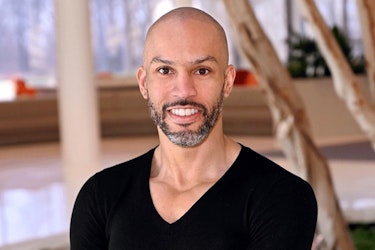Finance:
A Complete Guide to Filing Your Business Taxes
As a business owner, understanding your federal, state, and local taxes is vital to your overall success.
Trending
Ready. Set. Scale. 2025 Customer Trends Every Small Business Should Know
Small business experts highlight consumer trends that made their impact in 2024 and share insights into the key trends expected to shape 2025.
Budding Entrepreneurs
250+ Business Ideas to Spark Inspiration
Explore opportunity with our collection of 250+ business ideas, crafted to inspire and guide aspiring entrepreneurs.
Working Late? You’re Not Alone
You’re short on time and busy putting out fires. Sign up for our newsletter, Midnight Oil, and find out what you need to know to adapt and thrive tomorrow.
Sign UpCO— BrandStudio
You're in Good Company
Latest—
START
STARTUP
How to Register Your Business Name
Registering your business name helps you avoid running into problems down the road.
Do Small Businesses Need Life Insurance?
Life insurance protects your small business if you die. Learn more about the different types you can choose from.
Direct vs. Indirect Costs: Key Differences and Examples
Knowing the difference between direct and indirect costs is important for pricing, taxes, and financial health. See how these expenses differ and why it matters.
RUN
FINANCE
What Is Business Equity? How to Calculate Company Value
Equity is your company's value after deducting your liabilities from your assets. Learn more about how business equity works.
Trend Forecasters on the Consumer Trends Impacting Business
Trend analysts weigh in on the macro movements, innovations, and consumer motivations businesses need to prepare for and act on to sustain success, from 'kidulting' to AI companionship.
How Milani Cosmetics Tapped Sports to Vault into Beauty’s Big Leagues
For the disruptor brand, high-wattage marketing collaborations with female athletes and influencers proved a case study in engaging shoppers and gaining market share.
Small Businesses to Love This Valentine’s Day
There are so many ways to express “I love you” in a gift, and these small businesses present some unique and sentimental options.
GROW
THRIVE
What Is a DiSC Personality Test?
Learn more about the DiSC personality test and how to use it to understand yourself and others better.
RUN
TECHNOLOGY
How to Open a Shopify Store in 5 Steps
Shopify makes it easy for e-commerce businesses to sell their products online. Learn how to set up your Shopify store in 30 minutes or less.
Small Business Update With Neil Bradley: January 2025
Discover updates on tax and regulatory changes, workforce shortages, tariffs, and the growing role of AI, and how your small business can adapt and thrive in 2025.

























